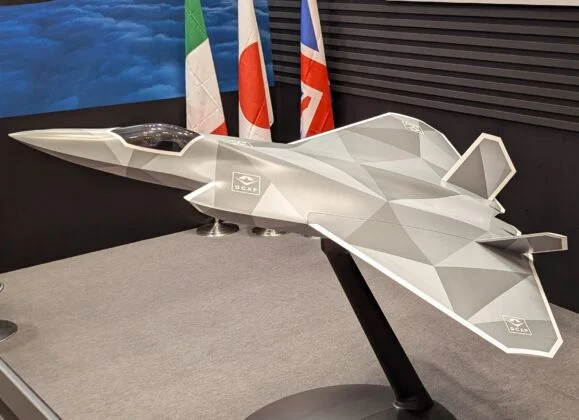
Japan, the United Kingdom and Italy moved one step closer to a major milestone in their joint next-generation fighter program this week, as the three defense ministers met by video conference to advance the Global Combat Air Program (GCAP).
The Japanese Ministry of Defense said the meeting took place on Nov. 25 from 5:00 p.m. for approximately 80 minutes.
GCAP is a trilateral effort to develop a sixth-generation combat aircraft by the mid-2030s, combining advanced sensors, open-architecture mission systems and a new powerplant expected to use “advanced cooling, high-temperature materials, and additive manufacturing.”
According to a statement from Tokyo, the meeting brought together Japanese Defense Minister Minoru Koizumi, UK Defence Secretary John Healey and Italian Defense Minister Guido Crosetto for detailed discussions on the status of the program and the steps required to keep its development on schedule.
At the start of the session, Healey and Crosetto welcomed Koizumi to his new role and expressed support for close cooperation under the GCAP framework. In response, Koizumi said he intends to work closely with both counterparts “to steadily advance GCAP” and strengthen coordination among the three governments.
The Japanese ministry said all three ministers reaffirmed the commitment reached at a previous meeting in July: to finalize the program’s first international integration contract between the GCAP Intergovernmental Organization (GIGO) and the joint industry entity, EdgeWing, before the end of the year.
The statement said the ministers agreed to continue “close coordination to advance the final adjustments” required to complete the agreement. The contract is expected to solidify how governments and industry will integrate design, testing and early production work on the future aircraft.
GCAP aims to combine capabilities from Japan’s Mitsubishi Heavy Industries, the UK’s BAE Systems and Italy’s Leonardo, with a shared focus on air-dominance missions and survivability in highly contested environments. While technical details of the airframe remain under development, officials have highlighted the propulsion system as a core element of the program. The advanced engine is planned to incorporate high-temperature materials, new thermal-management technologies and extensive use of additive manufacturing to support improved performance and reduced maintenance demands.
The meeting also underscored the program’s strategic importance for all three nations. Japan sees GCAP as a central pillar of its future air-defense posture. London considers the program essential for maintaining combat-air industrial capacity. Rome has emphasized that the initiative strengthens European-Asian defense ties and secures long-term aerospace manufacturing jobs.
Tokyo said the three ministers committed to maintaining momentum and ensuring that program decisions continue to align across the three partner nations as development accelerates.